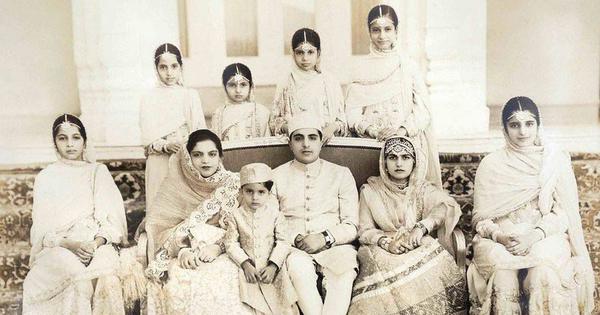Of Law & Legal
Longest Civil Suit In Indian Legal History – Do You Know?

For 47 years, Rampur Nawab’s family fought over his inheritance.
Finally, SC decided the matter this week. The feud started in 1969, when Zulfiquar Ali Khan, younger brother of Murtaza Ali Khan, challenged the certificate of inheritance issued by the government of India in favour of the eldest son of the family.
On the basis of the certificate of inheritance issued by the government, Murtaza Ali Khan, the eldest son of Nawab’s family took charge as Nawab in April 1966.
The case is related to the legacy of Raza Ali Khan, the Nawab of Rampur, who decided to accede to the Indian union in 1949. After, his death, the eldest son, Murtaza Ali Khan, took over as Nawab and claimed absolute property rights, over all the private properties of Rampur Nawab.
The younger son, terming this illegal decided to challenge this inheritance on the basis of Muslim Personal Law. He was joined in the litigation by three of his sisters.
When Raza Ali Khan died in 1966, he had three wives, three sons and six daughters. His eldest son Murtaza Ali Khan succeeded him as head of the state, as per custom. The government recognised him as the sole inheritor of all his father’s private properties and issued a certificate to this effect.
But his brother challenged this in the civil court. Thus, began a royal property dispute in which the courts were asked to decide if the inheritance should be based on Muslim personal law or the unique gaddi system the royal family followed before joining the Indian Union.
Deciding in favour of younger brother, in December 1969, the Delhi High Court quashed the certificate of Murtaza Ali Khan. It meant, the Court ruled in favour of equal division of property among all the brothers and sisters.
Using the Delhi High Court judgement, Talat Fatima Hasan, the daughter of one of Raza Ali Khan’s daughters, moved a petition in a civil court in Rampur in 1970 asking for the properties to be divided. The court issued an interim order that the assets should neither be transferred nor disposed.
But the family squabble ran into an unexpected event: in December 1971, Prime Minister Indira Gandhi amended the Constitution and abolished privy purses. Murtaza Ali Khan, who was receiving Rs 7 lakh annually as a privy purse from the Indian government as the Nawab of Rampur, lost his income, with his wealth stuck in litigation.
For over 20 years, the suit to partition the properties stayed pending before the civil court. Then in 1995, the Allahabad High Court withdrew the suit from the civil court and placed it before itself. By then, Murtaza Ali Khan had died.
In the High Court, his descendants argued that two palaces – Khas Bagh Palace and the Sahbad Castle – had been recognised by the government of India in 1954 as the official residence of the ruler of Rampur. These palaces, along with their furniture, fixtures, equipment, pictures, motor garage, water works plant, dhobi-ghat, land and gardens were adjuncts of the ruler and could not be the subject matter of a suit, the argument went.
The High Court accepted this reasoning and dismissed the suits for partition in 1997. Talat Fatima Hasan then moved the Supreme Court.
Shariat or Gaddi?
The Nawabs are Shia Muslims. The central dispute in the civil suits was whether as Shia Muslims, the Muslim Personal Law (Shariat) Application Act would apply to the inheritance or the gaddi system that the family practiced before Independence. Murtaza Ali Khan wanted the gaddi system whereas the Talat Fatima Hasan pressed for the Muslim personal law.
The instrument of accession made a distinction between the Rampur state’s public properties, which became vested in the government of India, and the Nawab’s private properties, which formed his inheritance.
Lawyers for Murtaza Ali Khan and his legal heirs argued that private properties of the ruler were not entirely private – they were attached to the gaddi or the rulership. And so, they stayed with the person declared the Nawab.
But the Supreme Court refused to accept this argument. In the judgement, the bench said following their accession to the Indian union in 1949 and with the Constitution of India being enforced in 1950, the Nawabs were merely titular rulers who enjoyed certain privileges and privy purses. They neither had territory nor subjects. With sovereignty lost, the gaddi system had ceased to exist. The court said:
“When they were actual sovereigns, their entire State was attached to the Gaddi and not any particular property. There are no specific properties which can be attached to the Gaddi. It has to be the entire ‘State’ or nothing.
Since, we have held that they were rulers only as a matter of courtesy, to protect their erstwhile titles, the properties which were declared to be their personal properties had to be treated as their personal properties and could not be treated as properties attached to the Gaddi.”
Therefore, the court ruled that properties of the Nawab have to be divided according to the Shariat, which means that not only will male members of the family be entitled to a share, the women will also inherit a part of the estate.
Among them is Begum Noor Bano, the wife of Zulfiquar Ali Khan, who set the ball rolling in the courts when he challenged his brother, the Nawab’s oldest son, Murtaza Ali Khan, 47 years ago. And also Talat Fatima Hasan, the granddaughter of Raza Ali Khan, who took the battle further.
So, in the end it can be safely concluded that “Adalat mein der hai per andher nahi”, means it may take time but ultimately justice will be done.
Contributed by AJAY KUMMAR, LLM, MBA (UK), AIMA
Advocate and Consultants (Litigation, Criminal, Civil, Business, & Legal Consultancy)
Supreme Law International, Delhi & Dubai, Veteran Journalist,
National Spokesperson Lok Janshakti Party, NDA Govt of PM Modi





























